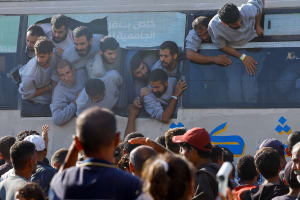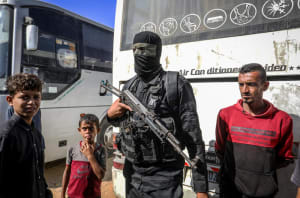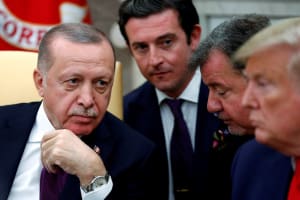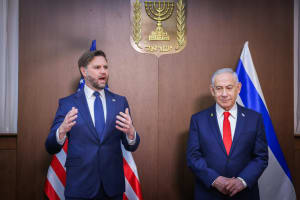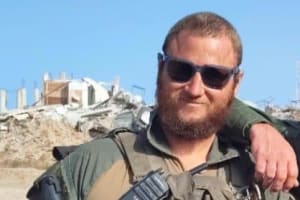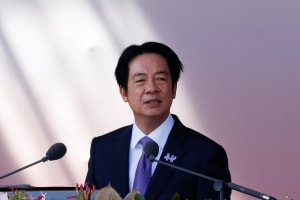Why Israel should be concerned with Turkey’s role in Gaza
Israeli analyst warns: 'A grave strategic mistake' for Israel to allow Turkish intervention in Gaza

An effigy of Israel’s Prime Minister Benjamin Netanyahu swung from a towering crane last week in Trabzon, a city in northern Turkey, with the inscription: “Death Penalty for Netanyahu” – a chilling illustration of why many Israelis oppose any Turkish role in the rebuilding of Gaza.
The deadly sentiment comes as U.S. President Donald Trump is banking on Turkish troops to join the U.S.-led Civil-Military Coordination Center (CMCC), the international stabilization force which will oversee the reconstruction and future management of Gaza.
However, Turkey’s participation in a multi-national mission to rebuild the Gaza Strip is generally viewed as a strategic and security nightmare scenario by military and government officials in Israel.
“In the Middle East, old threats are taking on new forms, and there are also new threats. We stand guard to thwart them,” Netanyahu said in a speech at the Knesset last week, referring to Turkey and Qatar’s roles in Gaza’s rehabilitation.
For Israel, Turkish troops in the coastal enclave represent a red line, wrought with suspicion and distrust.
Israel-Turkey relations took a rapid downward spiral when the war began two years ago after Hamas’ Oct. 7 attacks. Turkey’s president, Recep Tayyip Erdoğan, repeatedly castigated Israel, comparing the Jewish state to the Nazis and hurling accusations of “genocide.”
Even before Erdoğan came to power more than 20 years ago, Turkey supported Hamas and has provided asylum to Muslim Brotherhood members.
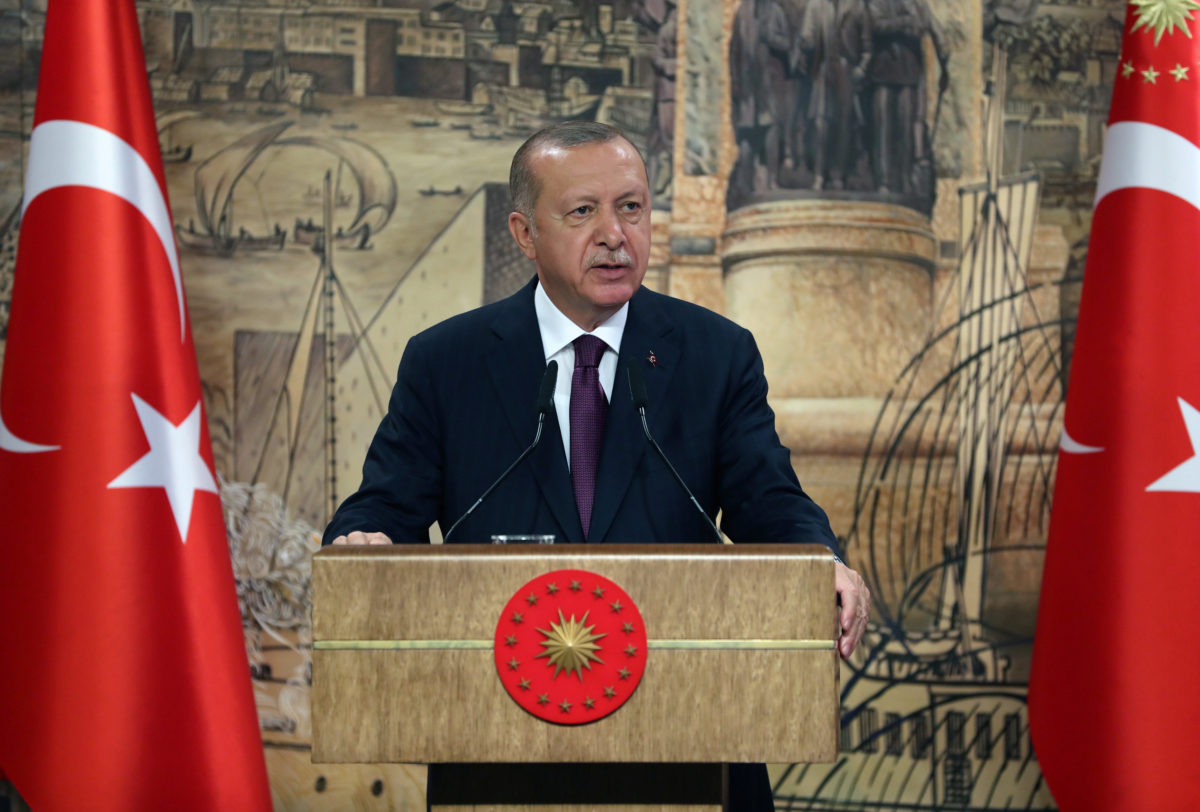
Gallia Lindenstrauss, senior research fellow at the Institute for National Security Studies, specializing in Turkish foreign policy, sees no indication that Turkey has changed its position on Hamas, suggesting that Ankara is not a neutral actor.
“Turkey is a supporter of Hamas,” she said. “It will assist Hamas in one way or another” in the Gaza Strip.
Hamas sustained heavy losses in the two-year war, but remains armed and in power. And while moderate Arab nations have hesitated to take a more direct role in Gaza, Turkey’s involvement in the ceasefire agreement led to it earning a greater role than Israel would have wanted, Lindenstrauss noted.
“Israel does not want to see Turkish soldiers in Gaza, but … we have to see who else will send forces and how it will evolve,” she noted. “That is a big point of disagreement with Israel.”
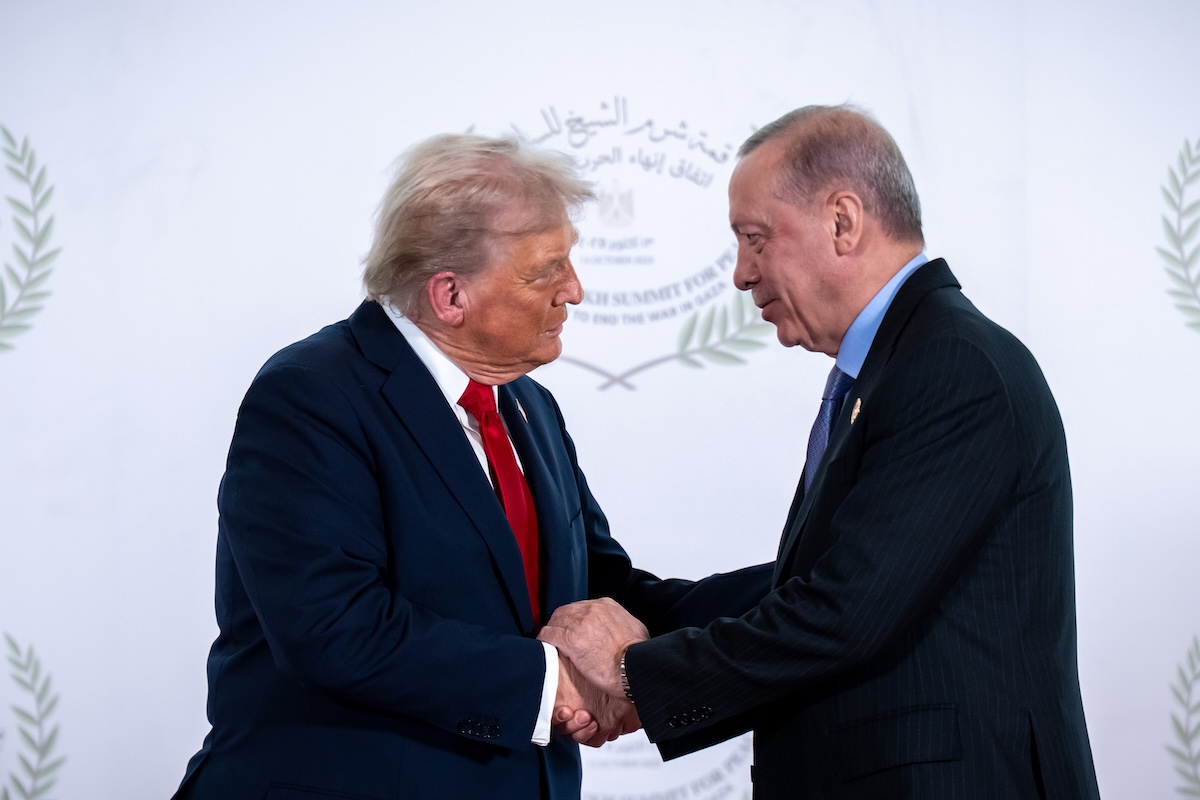
Hay Eytan Cohen Yanarocak, Ph.D, a researcher at the Moshe Dayan Center for Middle Eastern and African Studies at Tel Aviv University, told ALL ISRAEL NEWS that history shows what can happen when Turkey assumes guardianship of a region. He noted that after Turkey intervened in Cyprus in 1960, by 1974 it had invaded the northern portion of the island – and still rules there today.
“From the Turkish point of view, once you acquire this guardianship, you will be able to use military force to enact your own agenda on the field,” said Yanarocak, an expert on contemporary Turkish politics and society.
“I think that will be a very grave strategic mistake for Israel if Israel would agree for such an intervention in Gaza,” he added.
Its presence in the enclave would widen Turkey’s burgeoning stranglehold around Israel under the expansionist policies of Erdoğan, who insists his nation is “transforming into a global power.”
“From Syria to Gaza, from the Gulf to the conflict between Russia and Ukraine, no equation can be established without Turkey,” he said last week in Istanbul. “Now, there is a Türkiye that is respected both in its region and around the world, a nation that exports peace and stability.”
After the ceasefire was declared on Oct. 9, Erdoğan promised Turks even more: “Our Palestinian brothers, especially Hamas, have shown a very prudent attitude by indicating that they are ready for peace. We also supported the discussions with other Muslim countries in the region,” he said, adding, “I will go to Gaza first, then you.”
On Israel’s northern border, Turkey also rushed to fill the vacuum left by the fallen Bashar al-Assad regime in Syria late last year.
“When we are looking at the map, we see there is an ongoing Turkish strategy of containing Israel,” Yanarocak noted, adding that the Turks are also expressing interest in Egypt so that, along with its fleets in the Mediterranean and allies in the east, it is building “a whole siege” around the Jewish state.
“Therefore, Israel should be very cautious in not permitting Turkey to penetrate deep into Syria,” he said.
Lindenstrauss differentiates between Turkey’s role on Israel’s northern and southern borders.
“People put these two arenas together and each has its own problems and solutions. With regard to Syria, there is a hotline and there are also talks between Israel and the (Syrian President Ahmed) al-Shaara regime that will relax the tensions,” she said. “Gaza is more problematic because Hamas is still strong enough that with Turkey and Qatar supporting them, it will be hard to sideline it.”
Israel maintains a military presence in southern Syria while Turkey remains in the north. That, along with a new hotline between Israel and Turkey regarding respective military actions in Syria, has helped ease tensions slightly. Ongoing Israeli–Syrian regime talks also help reduce friction.
But Gaza remains a wild card.
Israelis willing to pay a heavy price to get their hostages back will soon grapple with decisions made by a multinational amalgamation on the southern front that leans favorably toward Turkey and Qatar.
Lindenstrauss said that with Erdoğan now viewed by Trump as “someone who can deliver,” and with what Turkey has to offer – Turkish construction companies are good – “it's hard to see how Turkey is not involved.”
At the very least, Turkey will likely participate in efforts to recover hostages’ bodies and distribute humanitarian aid.
But, according to Yanarocak, Erdoğan aspires to revive the Ottoman Turkish Islamic influence in this region, “and therefore, Israel, as the Jewish state, is constituting a very important obstacle for this vision.”
“Israel fought this war to make its borders more secure,” Yanarocak said. “Israel should do everything possible to not let Turkey into Gaza or southern Syria.”

Is All Israel News’ faithful reporting important to you? Be part of it—help us continue by becoming a $5/month supporting partner.

Nicole Jansezian is a journalist, travel documentarian and cultural entrepreneur based in Jerusalem. She serves as the Communications Director at CBN Israel and is the former news editor and senior correspondent for ALL ISRAEL NEWS. On her YouTube channel she highlights fascinating tidbits from the Holy Land and gives a platform to the people behind the stories.
You might also like to read this:







